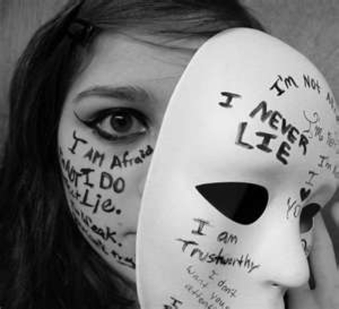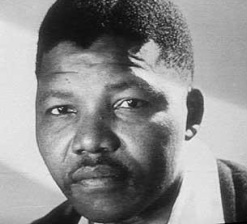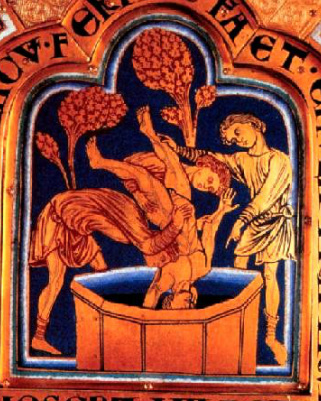
I don’t want to make any assumptions here, but I think it’s possible that, for some folks here, attending services was your second choice for tonight. I think that some of you are only here because you could not get tickets to see the new Star Wars movie. I’m here to tell you, that it’s okay with me. I can’t wait to see the movie myself.
The first Star Wars movie (which the science fiction geeks among us will refer to as Episode IV: A New Hope) came out in May of 1977. I was fourteen years old. I remember in detail the circumstances of my seeing it for the first time.
It was July. I was away at summer camp and it was a rainy day, the second or third rainy day in a row. Rather than let the campers sit in their cabins all day making mayhem, the camp directors put us all on busses and took us to the local movie theater. When we got to the theater, we had two choices. The first choice was A Bridge Too Far, an epic World War II movie starring Dirk Bogarde (remember him?), James Caan, Michael Caine and Sean Connery.
The second choice was Star Wars, a science-fictiony, space movie starring Alec Guinness and a bunch of actors nobody had ever heard of. There was the guy who played the man with the cowboy hat in American Graffiti as the captain of a spaceship. (I think he was in a few movies after Star Wars, too). There was Eddie Fisher and Debbie Reynolds' daughter as a space princess. The leading role was played by a young guy who we thought we might have seen in an episode of the Partridge Family, but we weren't sure.
There was a real divide between the boys who went to see A Bridge Too Far and the ones who went to see Star Wars. The war movie attracted the jocks, the 14-year-old boys who liked tough guys and who wanted to be tough guys. (I will mention at this point that I was at a summer camp that catered mostly to Jewish boys from the suburbs of Westchester and Long Island. We were not exactly stereotypes of Marine material). I was not a jock or a tough kid. I was in the smaller group of boys, the nerdier and less physically threatening sort, who went to see Star Wars.
This is the part of the story where I tear up and say in a voice on the edge of cracking, “This movie changed my life.” So here I go:
This movie changed my life. I watched the opening scene with a bucket of popcorn in my lap. A space ship flew across a black, star filled sky. A larger spaceship, firing at the smaller ship, came down from the top of the screen. It just kept growing and growing until it filled the entire screen. It was enormous. It was overwhelming. I was hooked, and the movie was only in its first minute.
What followed for the next two hours was pure, unadulterated fuel for the imagination of a nerdy adolescent boy. Spaceships, robots, aliens, chases, explosions and adventure. But that was not all. From the first time I watched Star Wars, I was grabbed by the story. There was a boy who felt a distance from the uncle and aunt who had raised him. He felt that he was born for something bigger and better. There was a wise old mentor to guide him, The mentor offered him a chance for the adventure that he did not even know he had been seeking. There was a frightening power that had destroyed the father he had never known. (No spoilers now, people). There was a beautiful princess who needed to be saved. There was the devastating death of the mentor. There was a final confrontation with the dark power that had cast a shadow over his entire life. There was triumph as the boy fulfilled his destiny and destroyed the evil.
This is not just a story that George Lucas imagined as he daydreamed as a young man. This is a story that is as old as storytelling. This is King Arthur pulling the sword from the stone. This is Moses drawn from the water to grow up to defeat Pharaoh. This is Gilgamesh wailing over the death of his companion Enkidu.
After the closing credits completed and the theater lights came up, I stood to keep up with the other campers who were already leaving to get back on the bus. I remember that I said, out loud, “That is the greatest movie I have ever seen.” And I meant it. I felt sorry for those poor dolts who had gone to see A Bridge Too Far.
Years later, when I was in my twenties, I read books by Joseph Campbell, the American writer who popularized mythology and the literary foundations of myths. Campbell had a profound effect on Star Wars creator George Lucas and, as Lucas later revealed, much of the structure of the Star Wars story was based on Campbell’s theories about mythic paradigms of the “the hero’s journey.” Campbell also was an influence on me at the time. His books spurred my interest in the sacred nature of stories and how myths help us to form our own personal stories about who we are, the purpose of our lives, and the meaning of our existence.
So now, thirty-eight years after I spilled popcorn all over myself watching “the greatest movie I [had] ever seen,” I am eagerly anticipating the latest episode of the continuing story of Luke, Leia, Han and Chewie. I also think about how Judaism uses stories all of the time to teach us about our lives.
We sell our tradition short if we think that the stories of Abraham, Rebecca, Moses, Esther, David and Ruth are just there to report historic facts, to entertain our children, or to give us a list of God's dos and don'ts. Our tradition is meant to move us, to fire our imaginations to consider the meaning of our lives, the adventure of confronting our own demons, the triumph of living life well. Stories do that for us better than any philosophical treatise or theological discourse. Our stories teach us who we are and they teach us whom we should aspire to be.
In this week’s Torah portion, for example, we see Joseph as the second-in-command of all of Egypt. In front of him are his brothers who do not recognize him, the same brothers who had sold him into slavery decades earlier. The brothers stand in front of Joseph seeking to buy the grain that will keep them and their families alive through a famine. We see Joseph wondering what he should do. Should he make them suffer for their past mistreatment of him? Should he test them and watch them squirm? Should he reveal himself to them? Should he pity them?
It’s not a story that tells us anything useful about the history of Egypt, it does not make a pleasant bedtime story for our children, and it does not contain a single one of God's commandments or laws. It is a holy story because it is a story about us – a story that mirrors our own experience in trying to make difficult, moral decisions in a life that constantly perplexes us. It is a story that urges us to go on the adventure of life and to become the heroes of our own lives, to confront evil and to find where evil lies within ourselves, and it reminds us that we can triumph in small ways and make our world better in so doing.
On this Shabbat, let me wish you a life of adventure, bravery, triumph, and not too many explosions. I wish you Yashar Koch’cha, a Hebrew phrase that literally means, “May your strength be straight,” but which, on this occasion, I shall translate as, “May the Force be with you.”
Shabbat Shalom.
Other Posts on This Topic:
Becoming the Hero of Your Own Life
Dreams and Dreamers




 RSS Feed
RSS Feed
